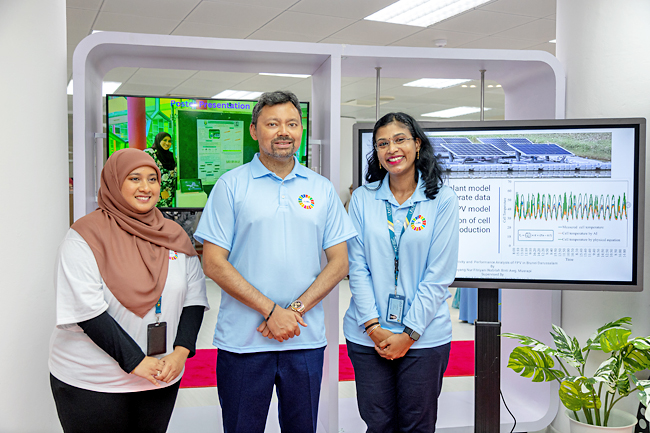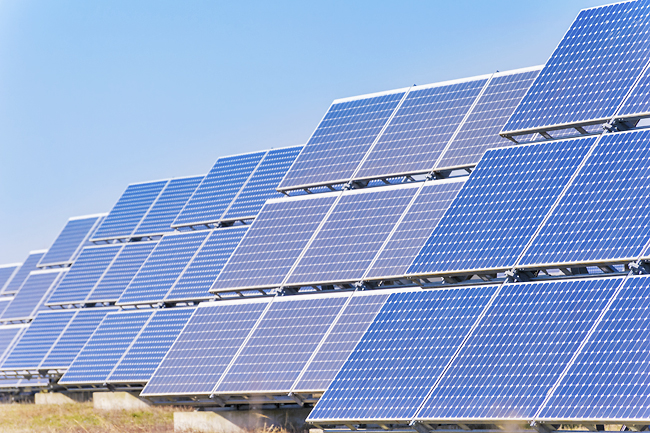The boundaries of possibility are constantly being redefined as innovations through technology are reshaping the very fabric of our lives. From artificial intelligence (AI) revolutionising industries to ground-breaking advancements in healthcare, the digital age is driving an unprecedented era of creativity and progress.
These technological marvels are not just altering the way we live and work; they are creating new opportunities, empowering communities and paving the way for a future where the unimaginable becomes a reality.
To that end, research plays an indispensable role in bringing technological innovations to everyday life. It serves as the foundation upon which breakthroughs are built, ensuring that new technologies are not only cutting-edge but also practical and safe for widespread use. One of the sustainability projects among eight others showcased at the Universiti Brunei Darussalam (UBD) Convocation Festival recently was a study conducted by Nur Fitriyani Nabilah binti Musrapi and Dr Veena Raj titled ‘Temperature Sensitivity and Performance Analysis of Floating Solar PV System in Brunei’.
This study embarks on an exciting journey to explore the performance of various solar panel systems in Brunei, with a particular focus on the potential of floating solar panels. By harnessing the country’s abundant sunshine and utilising innovative technology, this research aims to unlock new possibilities in renewable energy.
More than just a technical endeavour, it aligns with global efforts to champion sustainability, directly supporting the United Nations’ Sustainable Development Goal (SDG) 7 – Affordable and Clean Energy, and SDG 13 – Climate Action. The findings could pave the way for greener energy solutions, helping Brunei take bold strides towards a more sustainable future.


The Sultanate, nestled in the tropics, boasts immense potential for solar energy, yet building large solar power plants presents a challenge due to limited land and the need to protect the nation’s forests. However, with an abundance of inland water bodies covering roughly 50,000 hectares, floating solar panels have emerged as a promising solution for harnessing renewable energy.
Dr Veena explained that the concept for the floating solar photovoltaic (FPV) project aligns with the Brunei government’s strategic push towards expanding renewable energy. In fact, the government has identified nine potential sites for FPV installations, aiming to achieve a total capacity of 2,323 MW of solar power by 2035.
These sites include Ulu Tutong Dam, Benutan Reservoir, Kago Dam, Mengkubau Dam, Tasek Lama, Imang Reservoir, Sengkurong Lake, Ikas Lake, and Tasek Pelangi Biru. Each of these locations offers vast water surfaces ideal for floating solar systems, enabling efficient energy generation while preserving precious land.
“To support the initial phase of this initiative, my project, a small testbed, is being set up at the UBD campus water bodies near the mosque. This pilot project is crucial in studying the feasibility and performance of FPV systems under Brunei’s specific environmental conditions.
“The project has received support from the Faculty of Integrated Technologies through the faculty research fund, which has been instrumental in bringing this idea to life,” added Dr Veena.
She further explained that the insights gained from this testbed will provide crucial data to support the scaling up of FPV installations across the identified sites. This project not only aligns with the government’s vision of enhancing energy security and sustainability but also plays a vital role in reducing carbon emissions in Brunei.
However, the journey hasn’t been without its hurdles. Initiated during the COVID-19 pandemic, the project faced significant delays, particularly with the delivery of solar panels and essential equipment.
Global supply chain disruptions meant that materials took far longer to arrive than anticipated, extending the project timeline considerably.
Additionally, identifying the right prototype design for the floating solar PV system proved challenging. As an off-grid system, ensuring the appropriate load for efficient energy use was difficult.
Further complications arose from the small-scale testbed, located in a pond on the UBD campus, where shading effects from nearby trees and buildings impacted the solar panels’ power production.
Despite these setbacks, the project remains a key step towards Brunei’s renewable energy goals.
Addressing these challenges necessitated thoughtful adjustments to both the design and implementation processes to ensure the project’s success.
Dr Veena said despite the setbacks, the support from the Faculty of Integrated Technologies, her student and research collaborators has been key in overcoming these hurdles and advancing the project.
The experience has offered valuable insights essential for scaling up FPV systems across Brunei, ensuring that future installations are better prepared to tackle similar issues.
Dr Veena’s floating solar PV project primarily aims to demonstrate the feasibility and effectiveness of FPV systems in Brunei’s unique environmental conditions.
By operating a small-scale testbed, the team gathers essential data on system performance under factors like sunlight, shading and water temperatures – vital for optimising designs for larger-scale implementations across the country. “We also aim to assess the project’s scalability,” Dr Veena explained, “by addressing challenges at the testbed level to establish a foundation for future projects, particularly at larger sites such as Ulu Tutong Dam and Benutan Reservoir.”
Another goal is to showcase the potential of off-grid FPV solutions in providing reliable power to remote areas, which could help develop sustainable energy infrastructure in underdeveloped regions.
Additionally, the team has developed an AI-based system to monitor the solar panels’ cell temperature, a key factor in efficiency.
Unlike traditional ground-mounted solar panels, which often suffer from higher ambient temperatures, FPV systems benefit from the cooling effect of water bodies, maintaining lower cell temperatures and improving overall efficiency. This combination of AI technology and FPV innovation highlights the efficiency gains FPV systems offer over conventional setups.
These efforts, Dr Veena added, align with Brunei’s renewable energy goals, providing a more sustainable and efficient energy solution for the country. – Lyna Mohammad




